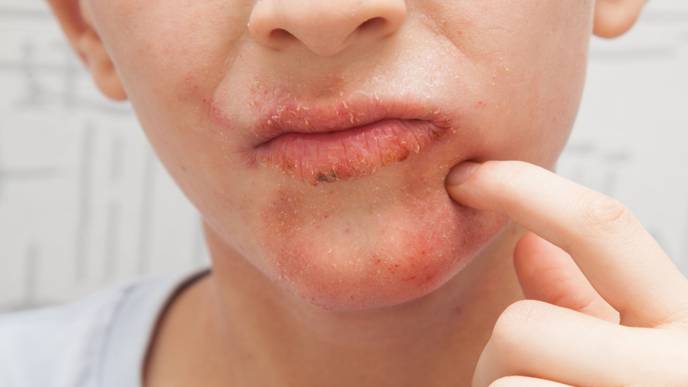FDA Approval of (tralokinumab-ldrm) for the Treatment of Moderate-to-Severe Atopic Dermatitis in Pediatric Patients Aged 12-17 Years

12/22/2023
The US Food and Drug Administration (FDA) has expanded the approval of Adbry® (tralokinumab-ldrm) to include pediatric patients aged 12 to 17 years with moderate-to-severe atopic dermatitis (AD) whose disease is not adequately controlled with topical prescription therapies or when those therapies are not advisable, LEO Pharma Inc. today announced. Adbry is the first and only FDA-approved biologic that specifically binds to and inhibits the interleukin (IL)-13 cytokine, one of the key drivers of AD signs and symptoms.1 More than five times as many pediatric patients had clear or almost clear skin with Adbry compared to placebo: 21% of patients who received Adbry achieved an Investigator's Global Assessment (IGA) score of 0 ("clear") or 1 ("almost clear") compared to 4% who received placebo.1 Approximately five times as many pediatric patients saw a substantial disease improvement with Adbry compared to placebo: 29% of patients who received Adbry achieved at least a 75% improvement in their Eczema Area and Severity Index score (EASI-75) compared to 6% who received placebo.1 More than seven times as many pediatric patients experienced significantly reduced itch with Adbry compared to placebo: 23% of patients who received Adbry achieved at least a four-point reduction in Adolescent Worst Pruritis Numerical Rating Scale (NRS) compared to 3% with placebo.1 In ECZTRA-6, a higher proportion of pediatric patients who received Adbry achieved at least a 90% improvement in their Eczema Area and Severity Index score (EASI-90) compared to placebo.1
"This is an important milestone on our path towards making a fundamental difference for those who need it most. This critical patient group now has access to a much-needed additional treatment option to manage their atopic dermatitis," said Brian Hilberdink, EVP and President, Region North America, LEO Pharma, “We are delighted to be able to offer Adbry, a highly targeted treatment, to both adult and pediatric patients in the U.S. This debilitating disease can have a particularly strong impact on pediatric patients, who often feel socially isolated because of their condition. We are incredibly proud of the progress we have made to date, and we will continue to work hard to address unmet needs in additional patient populations.”
An initial loading dose of 300 mg, followed by a 150 mg dose every two weeks is approved for US pediatric patients aged 12 to 17 years.*1
The approval is based on data from the Phase 3 ECZTRA 6 trial, which evaluated the efficacy and safety of Adbry in 289 pediatric patients aged 12 to 17 years with moderate-to-severe AD who were candidates for systemic therapy. A total of 98 patients received an initial dose of Adbry 300 mg followed by 150 mg every other week up to Week 16. The trial met its primary and key secondary endpoints1:
- More than five times as many pediatric patients had clear or almost clear skin with Adbry compared to placebo: 21% of patients who received Adbry achieved an Investigator's Global Assessment (IGA) score of 0 (“clear”) or 1 (“almost clear”) compared to 4% who received placebo.1
- Approximately five times as many pediatric patients saw a substantial disease improvement with Adbry compared to placebo: 29% of patients who received Adbry achieved at least a 75% improvement in their Eczema Area and Severity Index score (EASI-75) compared to 6% who received placebo.1
- More than seven times as many pediatric patients experienced significantly reduced itch with Adbry compared to placebo: 23% of patients who received Adbry achieved at least a four-point reduction in Adolescent Worst Pruritis Numerical Rating Scale (NRS) compared to 3% with placebo.1
- In ECZTRA-6, a higher proportion of pediatric patients who received Adbry achieved at least a 90% improvement in their Eczema Area and Severity Index score (EASI-90) compared to placebo.1
The safety of Adbry, assessed through the initial treatment period of 16 weeks and the long-term period of 52 weeks, was comparable to the safety profile from trials in adults with atopic dermatitis.In the ECZTRA 1, 2, and ECZTRA 3 adult trials, the most common adverse events (incidence ≥1%) were upper respiratory tract infections (mainly reported as the common cold), conjunctivitis, injection site reactions, and eosinophilia.1
“We know the symptoms associated with moderate-to-severe atopic dermatitis can have an impact on pediatric patients, which is why it’s so important to have treatment options with demonstrated efficacy in itch reduction and skin clearance,” said Amy Paller, MD, Chair, Department of Dermatology, Feinberg School of Medicine, Northwestern University in Chicago, the international coordinating investigator for ECZTRA 6. “Clinical trial results that provide this evidence are invaluable to clinicians evaluating the safety and efficacy of treatment options for their pediatric patients.”
“The approval of Adbry for pediatric patients living with moderate-to-severe atopic dermatitis expands the therapeutic options for those living with this disease who historically have had a limited selection to choose from,” said Julie Block, President and CEO of the National Eczema Association. “Such advances in the atopic dermatitis treatment landscape provide much-needed hope for pediatric patients seeking a long-term treatment option that could work for them.”
Dr. Paller is an ECZTRA 6 clinical trial investigator and a paid consultant of LEO Pharma Inc.
References
1. Adbry® (tralokinumab-ldrm) Prescribing Information. LEO Pharma; December 2023.
2. Bieber T. Interleukin-13: targeting an underestimated cytokine in atopic dermatitis. Allergy. 2020; 75:54-62.
3. Popovic B, et al. Structural Characterisation Reveals Mechanism of IL-13-Neutralising Monoclonal Antibody Tralokinumab as Inhibition of Binding to IL-13Rα1 and IL-13Rα2. J Mol Biol. 2017;429(2):208-219.

Facebook Comments